The Reluctant Prophet I Chose as My Patron Saint
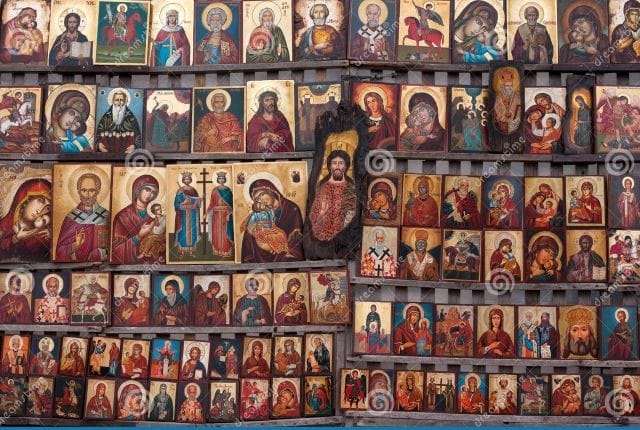
Chrismation wasn’t part of the plan.
I’d been a catechumen for over a year, slowly becoming acquainted with Orthodox life.
As Pascha approached, my priest announced that anyone wanting to be baptized or chrismated should speak to him after catechumen class.
I was going to put it off for another year.
But, he stopped me.
He believed that I was ready for full membership in the Orthodox Christian Church. He saw that I was attending regularly. I was engaged with the services, helping where I was able to, and was repentant of my past sins.
I had one week to prepare.
This means I had to pick a patron saint.
“ChatGPT, Help Me Choose a Saint”
I don’t know much about the saints. There are so many to choose from. The most obvious choice was Saint Peter.
It makes sense. We share a name.
Peter traveled with Jesus.
He is honored as the first bishop of Rome.
He was crucified upside-down for his beliefs.
Saint Peter is a great man. It would be an honor to name him my patron saint.
However, I wasn’t entirely sure.
So, with less than a week to decide, and very little existing knowledge, I used artificial intelligence. I got it to ask me a series of questions and then list names of Orthodox Saints based on my answers.
I also gave it some other relevant information such as my name, date of birth, where I’m from, where my parents came from, my profession, etc.
Here are some of the questions it asked. Try to answer these for yourself.
- What was your background before Orthodox Christianity?
I was raised protestant in the Dutch Christian Reformed Church. In my mid twenties, I walked away and lived a secular life. Eventually, I started to crave a spiritual connection. I began exploring different forms of spirituality: meditation, yoga, gurus, psychedelic drugs, and philosophy.
- What drew you to Orthodoxy?
Everything I was exploring kept leading me back towards Christianity. I needed something that was real, dedicated, and serious. Modern Christianity wasn’t offering that - Orthodoxy was.
- What have been your biggest struggles and temptations?
Lust. Failed relationships. Fowl language. I also wrestled with a few minor addictions: weed, cigarettes, lack of discipline.
- What virtue or quality do you most desire to grow in?
Repentance. That’s what I felt most deeply when I stood in church. Others were humility, courage, purity—but repentance stood out.
- Do you feel drawn to monastics, martyrs, bishops, warriors, or mystics?
I admire monastics, though it isn’t what I want for myself. I’ve lived in isolation before and hated it. But I am drawn to mystics. Protestantism often rejects the mystical, but Orthodoxy embraces it.
I also have a lot of respect for great men of the Bible.
- Are you more of an action-oriented or contemplative person?
Mostly action oriented, but I have a good contemplative streak.
- Do you feel especially connected to a time period, region, or part of the Church’s history?
I like the New Testament and early church history, but don’t feel more connected to any one era than another.
- Do you feel called to lead, serve, create, protect, or suffer faithfully?
I feel called to serve. As a teenager, I went on mission trips with the Christian Reformed Church. We helped build homes in Kentucky, fixed up a church and women’s shelter in Chicago, and ran maintenance at a camp for inner-city kids in Missouri. It helped to shape my faith.
- Is there a specific story, miracle, or quote from a saint that has moved you deeply?
Saint Nicholas’ generosity.
Saint Mary of Egypt’s repentance and overcoming of lust.
In the book “The Guru, The Young Man and Elder Paisios”, the author talks about being in India; and being able to feel when Saint Paisios was praying for him at Mount Athos in Greece.
There have been times in my life, where I could sense that someone was praying for me.
- What kind of man do you want to become?
I have many aspirations for my life.
I want to get married and raise a family.
I want to travel.
I want to be successful and financially independent.
I want to be strong and healthy.
However, what I want doesn’t matter as much as becoming the kind of man God wants me to be.
To do this, I need to be humble, wise, steadfast, and useful.
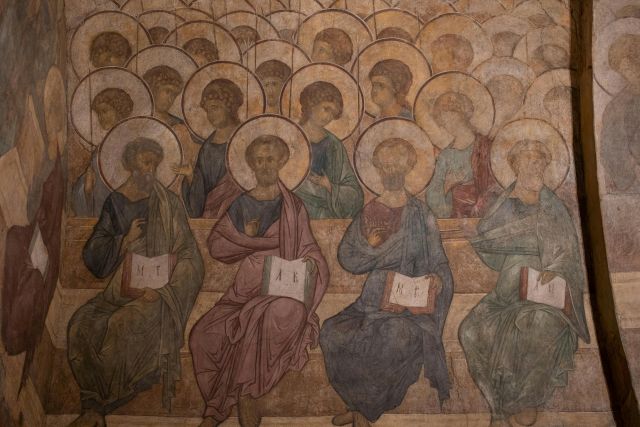
I did my best to answer as truthfully as I could to the questions.
I was then given a list of suitable candidates. Most of them didn’t speak to me.
However, one stood out.
The Story of Jonah
Jonah was called by God to travel to the city of Nineveh, and warn people to turn from their evil ways, or else face the wrath of God.
Nineveh was a violent and wicked city, the capital of the Assyrian Empire—infamous for cruelty and bloodshed.
Jonah feared for his life and didn’t believe they deserved mercy.
So he ran.
He booked passage on a boat traveling in the opposite direction.
While sleeping, the boat was caught in a storm with fierce winds and high waves.
The crew members of the boat began praying. When they saw Jonah asleep, they woke him, and demanded that he also pray.
Jonah knew what was happening.
He was the cause of this storm.
He instructed the crew members to throw him overboard, so the storm would stop.
Reluctantly, they did as he asked. Jonah was thrown overboard. The storm settled and the crew breathed a sigh of relief.
A whale, or some say a large fish, swallowed up Jonah, and he was trapped in the belly of the beast. He began praying and begging God for forgiveness.
Three days later, the whale spat Jonah out on the shores of Nineveh.
He knew what had to be done.
Even though he was terrified of Nineveh and its inhabitants, Jonah walked into the city and declared ‘Yet forty days, and Nineveh shall be overthrown.’
He never plead with them. He didn’t want them to change. Jonah hated the Ninevites and wanted their destruction.
However, little did Jonah realize that the Ninevites actually listened to him.
The entire city of 120 thousand people turned from their evil and violent ways. They begged God for forgiveness, began fasting, and wore sackcloth.
They repented. All of them.
God took notice and spared Nineveh from his wrath.
This angered Jonah.
He wanted the Ninevites dead, as payback for their evil deeds.
While waiting to see what would happen, Jonah set up camp just outside the city.
God allowed a leafy vine to grow tall and shade Jonah from the elements.
This made him content, but he was still mad with God for not destroying Ninevah.
So God sent a worm to cause the vine to wither. It left Jonah exposed to a blazing sun and scorching wind.
He was now exhausted and angry to the point of wanting to die.
God said to Jonah, “Is it right for you to be angry about the plant?”
“It is,” he said. “And I’m so angry I wish I were dead.”
God responded, “You have been concerned about this plant, though you did not tend it or make it grow. It sprang up overnight and died overnight. And should I not have concern for the great city of Nineveh, in which there are more than a hundred and twenty thousand people who cannot tell their right hand from their left—and also many animals?”
Jonah felt greater sympathy for the plant than he did for the 120 thousand inhabitants of Nineveh.
He may have been obedient to the Lord, albeit reluctantly, but he missed the message God was trying to show him.
So how does this relate to me?
Why Did I Choose Jonah as my Patron Saint?
My own three days of darkness - In this case, it was more like a few years.
Jonah made good use of his time spent in the belly of the whale by praying and begging forgiveness.
Alone in a new city. Working solo. Feeling isolated. Smoking pot daily. Engaging in fleeting hookups and sexual degeneracy. Abusing psychedelic drugs.
I bottomed out in darkness, but then started climbing back up while praying and begging God’s forgiveness.
I also ran - There was a point in my life where it was time to step up. I had been drifting for awhile, and although that served a purpose, it was now time to put down roots, settle in to my new city and take things seriously.
Instead, I fled to Mexico City without a plan. This wasted money and strained friendships.
I wanted destruction - Jonah wanted the Ninevites dead and their city wiped away. I feel the same way when I notice evil people and their patterns of behavior.
The problem is that when you kill people, you take away any chance they have to learn from their mistakes and ask for forgiveness.
The Lord giveth and the Lord taketh away - Jonah’s vine came and went. The same is true with a lot of my comforts. Don’t think that following God is going to make your life easy.
Believing in God isn’t going to make you rich, successful, happy, or prosperous. In fact, it makes things more difficult.
It strains friendships and relationships. You aren’t going to enjoy many of the activities you did before you became a Christian.
A curious theory - A lot of atheists and agnostics like to call out the story of Jonah.
It’s impossible for anybody to survive in the belly of a whale for three days. You would suffocate and die.
An Orthodox friend shared a theory with me regarding this story.
During the storm, Jonah was thrown overboard and drowned.
He was dead while the whale carried him to his destination. God then resurrected him so that he could deliver His message to Ninevah.
Maybe. Maybe not. But I love a good theory.
Acting out - I attended a Christian elementary school growing up. In Grade 7, I was in a school play about Jonah. I didn’t play him, but I had a leading role.
Choosing Jonah as my patron saint felt like a throwback to my childhood.
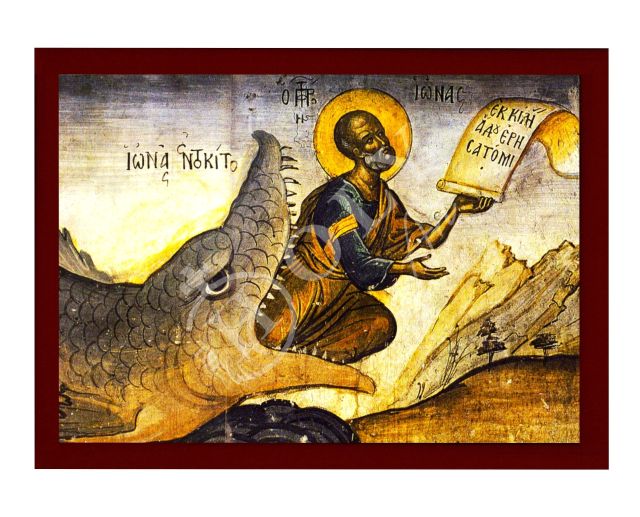
A few months after my chrismation, I was gifted an icon of Saint Jonah.
I’ve seen versions of this where Jonah is standing in the mouth of a large fish preaching at the shores of Nineveh.
In this icon, it looks more like he’s being devoured.
This is how I feel.
I’m working towards God’s will, while simultaneously being consumed by temptation and sin.
Jonah didn’t do the right thing at first.
He resisted and he ran.
God didn’t let him get away. He used him for a greater purpose, and because of that an entire city was spared.
The story of Jonah is a great example of God’s mercy in the face of disobedience and rebellion.
If this story speaks to you, hit Subscribe and bookmark the page.
Share it with someone who needs to hear it.
Now ask yourself:
Is there anything you’re running from?
What have you been avoiding?
Are you holding on to anger, regret, or bitterness that needs to be released?
You don’t have to stay there.
And if you find yourself trapped in darkness - as I have, and as Jonah once did - remember this prayer from Jonah 2:
“I called out to the Lord, out of my distress,
and he answered me;
out of the belly of Sheol I cried,
and you heard my voice.
For you cast me into the deep,
into the heart of the seas,
and the flood surrounded me;
all your waves and your billows
passed over me.
Then I said, ‘I am driven away
from your sight;
yet I shall again look
upon your holy temple.’
The waters closed in over me to take my life;
the deep surrounded me;
weeds were wrapped about my head
at the roots of the mountains.
I went down to the land
whose bars closed upon me forever;
yet you brought up my life from the pit,
O Lord my God.
When my life was fainting away,
I remembered the Lord,
and my prayer came to you,
into your holy temple.
Those who pay regard to vain idols
forsake their hope of steadfast love.
But I with the voice of thanksgiving
will sacrifice to you;
what I have vowed I will pay.
Salvation belongs to the Lord!”
God Bless.
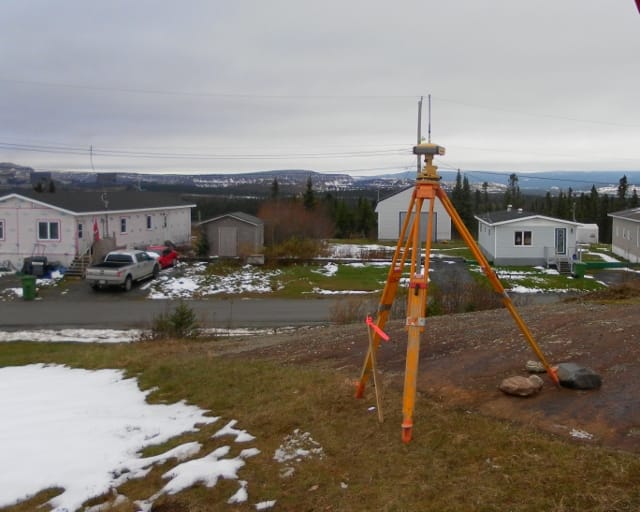
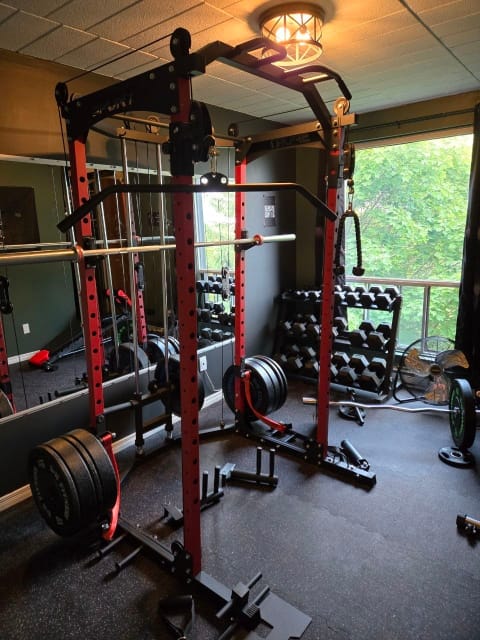
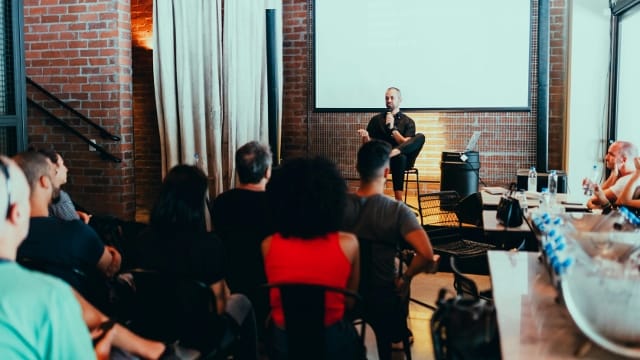


Member discussion